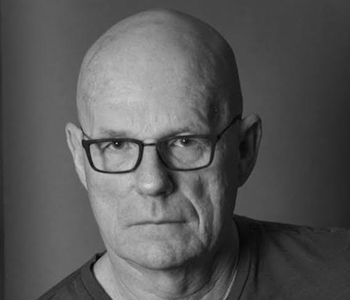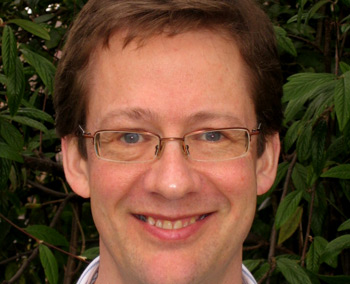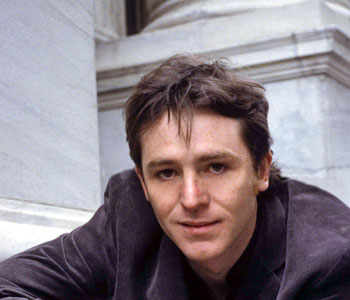Albena Azmanova
The Scandal of Reason: A Critical Theory of Political Judgment
Columbia University Press
296 pages, 6 x 9 inches
ISBN 978 0231153805
This book defends the duty of judgment and the freedom to err. Against the modernist ambition to discover truth by the power of reason, and post-modernist flagellation of both truth and reason, it urges that we drop the crutches of ideal theory when we think about justice and act upon injustice. The book offers a model of a pragmatic assessment of the grounds and direction of political action aiming singularly at the alleviation of existing human suffering.
The project is driven by the search for a politically useful theory of justice.
Much needed policy action is either blocked or sidetracked by hefty pondering about the grounds, goals, and preconditions for policy action. Did we get Iraq wrong? Should we intervene to stop the carnage in Syria? Should the wearing of the Islamic headscarf be allowed in public office in our secular republics? Should failing banks be bailed out by taxpayers? Should the European Union impose austerity measures on the Greeks as it is saving the Greek state from bankruptcy?
While politicians, when facing hard cases, are often in need of intellectual guidance, political philosophers have hardly ever offered ideas that can help or serve a politician—as the German philosopher Karl-Otto Apel once noted in exasperation. Indeed, for centuries learned men and women have supplied elaborate theories spelling out conflicting rights and duties and unattainable conditions for their satisfaction.
That political judgment is cursed by a perpetual wandering between vision and practicality, between high moral ideals and the pragmatics of political life, is something Aristotle already warned about. Aristotle observed that even though justice might be essential for political life, a science of politics and therefore a scientific theory of justice is unattainable. In matters political, he claimed, the particulars of our collective existence are the proper object of judgment. Therefore, practical wisdom, not general principles and theoretical reasoning, is what is needed when we judge the right organization of society.
Ironically, the design of a theory of justice seems to be as impossible as justice is essential for politics. The book offers a way out of this conundrum by replacing the search for high-minded theory of justice with a model of practical judgment.
My thinking on judgment as a faculty triggered by a sense (or rather, a sensation) of injustice was first prompted by my involvement with the struggle against the communist regime in my native Bulgaria.
I was raised as a conscientious communist—which meant a commitment to human dignity and a readiness to sacrifice convenience and self-interest in the name of a higher justice. This led me to join, as a first-year university student, a human rights committee whose goal was to stop the extreme damages to the health of people living in a city on the Danube river, caused by a heavily polluting factory. I signed the petition one evening, after classes. On the very next morning my dean summoned me to say that this committee did not have the blessing of the Party and therefore I would be expelled from the university should I refuse to withdraw my signature. I felt I did not really have a choice: one does not withdraw one’s support to human rights.
There was no place for calculus, not even of fear, as I was not facing a dilemma. We might not know what is Right, or Just, but the sense that something is wrong (and this is a physical sensation, rather than a mental calculus) has an immense motivational power.
To this first experience of the compelling power of the sense of injustice that points to the right thing to do added my experience of moving to New York in the early 1990s. I went to study for my doctoral degree at the New School for Social Research. Freshly emerged from the turbulence of a revolution, albeit a largely peaceful one, I felt bewildered by the debates on justice in the West. Preoccupation with economic redistribution, gender, cultural diversity, and action against sexual harassment, appeared all too smug to me when set against the multiple frustrations of life under political oppression and bankrupt economic system—both under communism and its aftermath.
Added to my stupefaction at the self-indulgence of the West was my puzzlement at the intellectual authority, at the time, of theories of communicative action and deliberative democracy. I could not understand how serious people, without a trace of irony or cynicism, would rely on “talking” to set right injustice.
Over time, the two sources of dissatisfaction became strands of analysis. How are our judgments of justice affected by what we consider to be relevant experiences of injustice? How can public debate make its participants aware of the deep social structures that generate injustice?
The answers to these questions became the foundation of a theory of political judgment. Although I elaborated the theory conceptually in the late 1990s (as doctoral dissertation), I did not want to publish it without providing empirical evidence to what I feared was too bold a model. Now this is done and the book is here.
Although the Enlightenment, at the dawn of Modernity, raised the beacon of Reason and thus raised humanity’s hopes for a right answer to complex issues, doubts about that promise emerged early on. One of the most prominent advocates of reason, Immanuel Kant, was exasperated by what he called “the Scandal of Reason.” The “scandal” is this: as much as the human mind is incapable of certain and verifiable knowledge, we are invariably compelled to seek such knowledge, especially concerning matters of human existence. The controversial faculty of reasoned judgment to waver between the extremes of uncertainty and dogma, of doubt and treacherous certainty, and to both destabilize political rules and render justification to morally appalling political rule (like Nazism and Stalinism), is the political expression of the “scandal of reason.”
From the scandal of reason grows what I call the “paradox of judgment”—the more ambitious the ideal of justice, the less applicable and useful the model is to political practice; yet the more politically realistic the theory, the weaker is its moral ambition, rendering the model unsound and equally useless.
So how do we know what is the right course of action and even when to act and when to stay put?
Rejecting, in a post-modern posture, the fundamentalist Enlightenment view of human beings as rational autonomous individuals is no answer. Because in this way we escape the guilt of embarking on an erroneous course of action only by succumbing to the guilt of becoming complicit to evil by not opposing it. As Hanna Arendt observed, when we are not guilty of “crimes of commission” we are guilty of “crimes of omission.” This means that whether we want it or not, we cannot suspend political judgment: we are equally responsible when we act as when we abstain from acting.
In order to resolve the paradox of judgment and offer a politically useful theory of justice, I propose to set aside ideal theory and instead focus on specific human suffering and the possibility to attenuate it. Thus, I develop a model that invites to look at injustice from the point of view of those who are subjected to injustice and pay attention to the way people formulate, and make sense, of their grievances.
The question “What is Justice?” gives way to the question “Who suffers and why?”




We don't put paywalls. We don't distract you with ads. We don't sell your data.
Please help to keep this running!